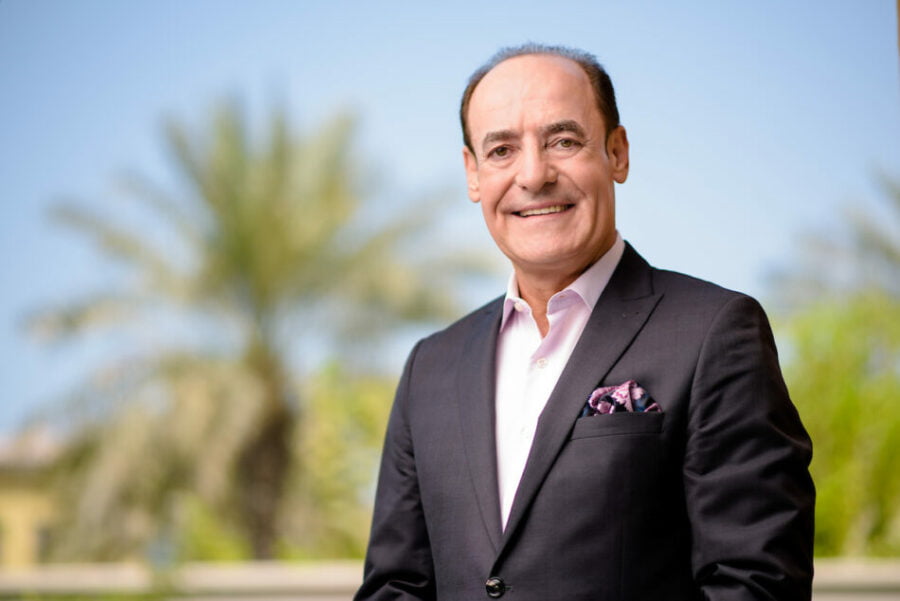Towards the end of the United Nations Conference of Parties (COP) 26th session, industry leaders were enthusiastic to see how the high-level discussions on climate change and carbon neutrality would drive future action.
This year’s focus on electric vehicles and zero emissions presented avenues to catalyze the targets previously set in the Paris Agreement.
“As the UAE readies itself to host COP 28 in 2023, leaders in the automotive industry are paying attention. We are preparing to meet this change through commitment, and I am looking forward to a large number of companies pledging towards more sustainable modes of travel and mobility,” Irfan Tansel, CEO at Al Masaood Automobiles told Economy Middle East.
“I am proud to say that Al Masaood Automobiles brands and partnerships have always operated as industry leaders on positive change. As the automotive industry pivots towards sustainable mobility, we are on course to help the region reduce carbon emissions by 50% by 2030, achieve net-zero emissions by 2050, and curb global warming temperatures to a 1.5-degree increase.”
Meeting the sustainable mobility agenda
Decarbonizing road transport calls for the auto-parts industry to gear up to provide millions of low emissions vehicles and explore potential strategies to reuse and responsibly discharge automobile parts and waste.
In particular, expanded road systems, rare-earth depletions for large car batteries, safe shredding of tire particulates from heavier cars, and elongating the battery life of hybrid and electric systems are some aspects that require further exploration.
While modular designs, stationary power storage units, low-energy smelting, and battery passports for a clean bill of zero-carbon emissions are positive suggestions, more needs to be done to meet sustainability agendas.
“I firmly believe that carrying these conversations initiated from COP 26 onwards to COP 28 will be one of the most important things driving the future of mobility in the coming years,” Tansel said.
Nissan: Committed to change
“Nissan, one of our primary partners, has always led the way in the pursuit of a sustainable and carbon-neutral future by introducing Ariya, its all-new electric SUV, at Expo 2020,” said Tansel.
The Nissan Motor Corporation has once again reinforced its commitment to the cause by recently unveiling its Ambition 2030 to empower mobility into the future. The first Japanese automaker to join the Race to Zero Campaign, it has promised to catalyse carbon neutrality goals through an investment of two trillion yen over the next five years, launch 15 new EVs and eight hybrid models, and aim for a 50% electrification mix by 2030.
Nissan’s Ambition 2030 statement is an unequivocal commitment to change — it is setting the agenda for others to follow. The automobile giant’s determination to work with like-minded companies and local bodies is further reinforced by Nissan joining the Science Based Targets Initiative (SBTi) — a partnership between CDP, the World Resources Institute, the WWF, and the UN Global Compact.
“I’m also proud to note that Nissan’s subsidiary, INFINITI, another Al Masaood Automobiles primary partner, is similarly following suit with its climate-focused agenda. With a customer-centric approach and carbon consciousness at its helm, the company has introduced various fully electrified systems with a fresh look put in place by the arrival of production models based on the QX Inspiration SUV, the Q Inspiration, and the Qs Inspiration sedan,” Tansel added.
Renault: The pioneer
“Always leading in technology, our partner Renault is spearheading the development of large-scale electric mobility in Europe,” Tansel indicated.
Year after year, the company’s electric vehicles remain popular on European roads, making up 15% of all European EVs. In 2021, Renault moved its strategy up another gear by introducing its latest model, Zoe. With a fully customizable climate control pre-conditioning system, the car has picked up multiple awards for affordability, sustainability, and driving ease. Recently launched in Abu Dhabi, Zoe is gaining popularity amongst environmentally conscious clientele to further drive the UAE’s climate control goals.
Al Masaood Automobiles: Paving the way ahead
“At Al Masaood, we hope to drive the country’s carbon reduction mandate onwards. As the residents of the MENA region embrace sustainability and consumers become more environmentally conscious, buyers are opting for hybrid and electric vehicles instead of their standard models. By strategizing and addressing this growing demand, we are developing multiple actions to further awareness of carbon neutrality to provide customers with an extensive range of electric options.”
Tansel added: “I believe that environmentally conscious futures can only be built on a strong foundation of sustainability. With Abu Dhabi hosting COP 28, the UAE is redirecting attention towards its ambitious environmental agenda and the role of mobility in the future. As automakers and dealers, we have a great responsibility to galvanize and support this change and boldly take it forward. By aligning our goals with the country’s vision, we hope to bring solutions to the table. I am confident that Al Masaood Automobiles’ young, inclusive, and innovative teams will make them environmentally conscious, practical, viable, and shareable.”








